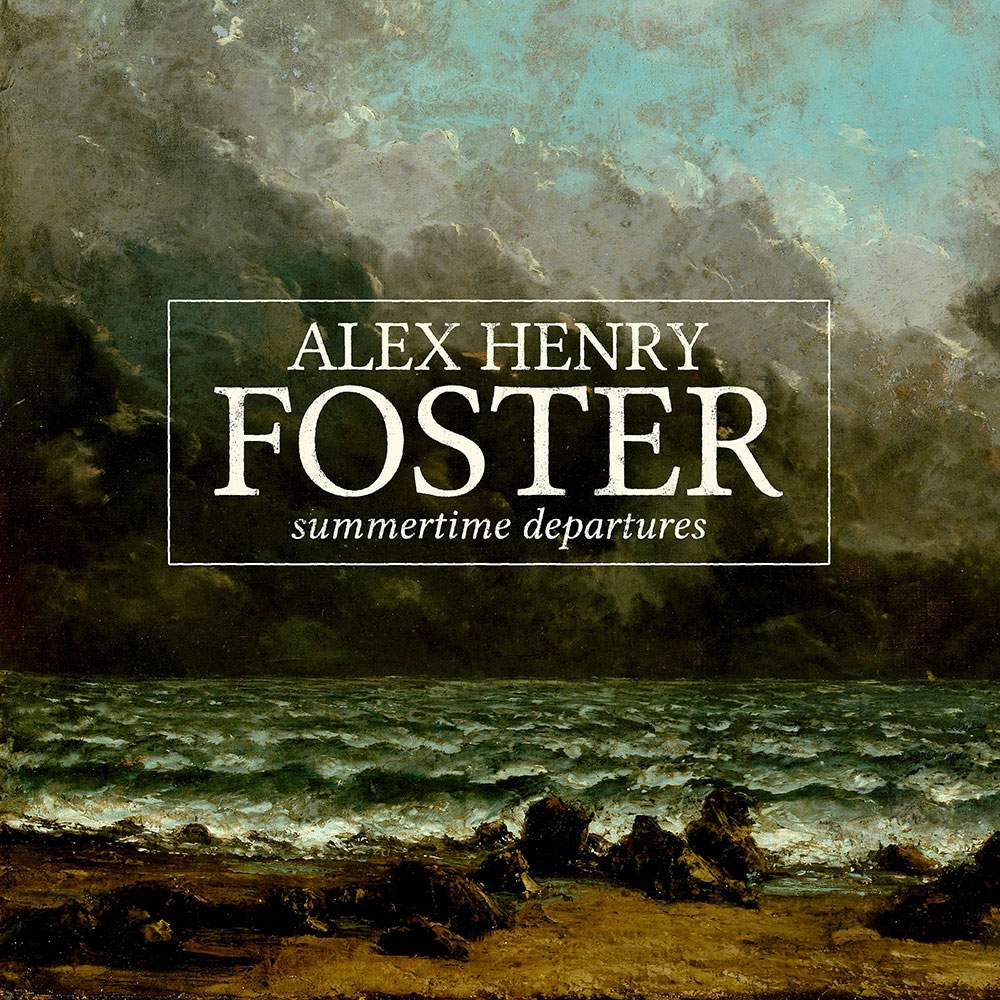I started to daub the words to what would later become the lyrics for “Summertime Departures” as I was living in the dazzling city of Tangier, where I sort of drifted in a moment of great confusion. My father’s passing being at the center of the echoing emptiness that I was no longer able to ignore after years trying to avoid any type of introspective honesty on what felt like a senseless existence at this point in my life.
For a son, a father’s death is often the end of innocence and the illusions that come with it. Time unexpectedly becomes an implacable enemy looking to get its fair share of whatever joyful moments you’ve experienced in the past as well as a loyal shadow always creeping up to you through daily preoccupations, we become ready to give away anything in return for a shallow promise of peaceful upcoming days… And as I have always embraced the concept of impermanence, I believed there should be a great deal of serenity coming with death… I was wrong.
In fact, my father’s death was as if I had lost enough of myself to suddenly wonder who I truly was and what it meant to face a truth that didn’t imply faith, if only the elusive sensation of having to let go in order to move on. There’s a profound lucidity that comes with honesty and having to face the reality that comes with death. I knew somehow I would find enough nonsense to convince myself of an intelligible measure of acceptance in order to find some purpose in all those emotions, as much as in their denial or absence thereof. Again, I was wrong.
The way I dealt with it all was silence and isolation, even though his presence, souvenir and memory, as much as all the questions and the resentment coming with it, were haunting me. I would so often dream about conversations we never had that I thought I was going crazy, if not obsessed. I wondered if it was sorrow, guilt, anger, but it was something intangible. My father dedicated most of his life to his strong spiritual beliefs and he believed until the very end that he would be healed. Even if he knew his cancer was incurable, he sang and praised to his last breath. He was so convinced of his miraculous healing that he never thought it would be necessary to write a few words of his own, to share untold stories or what he was making of his situation… That deep conviction was incredibly troubling for me, especially after his passing, but I refused to address any of it… Until I got to Tangier… and knew I had to.
Being alone in a place as appealingly fascinating as greatly puzzling, I spent countless days observing the sea standing between Europe and Africa from the rooftop terrace of a small guest house, looking at all the people craving to fill the few-minutes-ferry-ride gap keeping them away from the dream of a better life, all gracefully standing with their hopeful arms trying to stretch just wide enough to reach out to a shore of new possibilities that seems to slowly fade away with every longing prayer, observing kids playing football in old and narrow streets, the very same streets that saw their fathers and grandfathers envisioning a more singular life and the everlasting love only believed in by innocent youth, watching women peacefully smiling back at me while drawing water from the kasbah’s public fountain, gazing at elderly people reading poetry while others were praising the wonders of what looks so ordinary to passers-by always walking a little faster as days pass by. It was a world of unique paradoxes reflecting my state of emotional bewilderment right before my eyes.
Witnessing how those people connected with the notion of the “now” offered me a perspective I couldn’t escape from no more, something that was way beyond grief, life, death and myself. Therefore, I started writing. I never thought I would have the courage to be that honest, to be that vulnerable, to expose what I was going through and to eventually find a way to let him go, to be set free. It all sort of made sense with the image of setting stone on a sanctum shrine… That was the starting point. That was the strange but meaningful ignition for me and ultimately the song. The idea was about a “marker” testifying of the foundation a person could have been in our lives… a “common” stone transcending any sort of precious ornaments.
That image led me to wonder what’s ultimately left of us, when time passes by, when loved ones disappear, when promises vanish with the memories of those we cared for, when names are no longer mentioned, when our fondest souvenirs of someone we used to cherish slowly make place for somebody else’s heart, when the vivid colors of flowers are long gone, when time keeps its vows and catches up with us, when dreams and their hopeful shines wither, when we’re one faceless soul to somebody else’s view, just like those travelers stand on the beach waiting for a way to leave everything behind, kids losing their innocence before time, women withering away with every drop of water they still have to draw or an elderly person turning invisible, just like the magnificence of life that we cannot see anymore… When we are lost in the winds… When there’s no right or wrong in death…
And therefore, now looking at it with an honest perspective of my own paradoxes and vulnerability, I understand that “Summertime Departures” is my way to say that regardless of what we may have spent our entire lives believing in or what we may have forgotten with time, there is a permanence amidst the most painful of all sorrows and our decision to let go in the acceptance that love, just like stone, will forever endure.
– Alex

